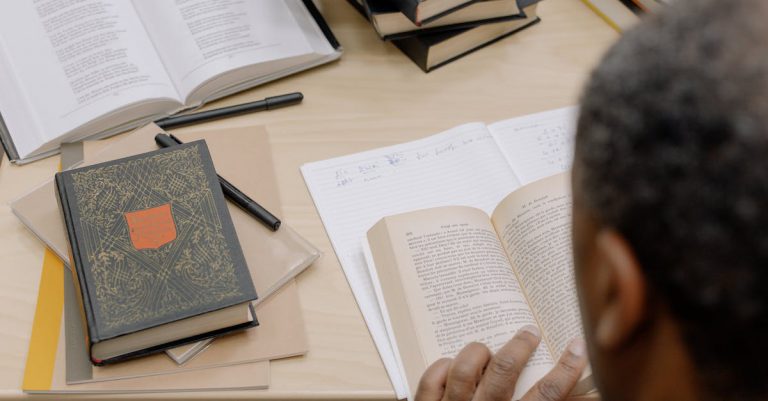Are you a high school student or parent trying to understand what IPC is all about? You’re in the right place!
If you’re short on time, here’s a quick answer to your question: IPC stands for Integrated Physics and Chemistry, a course that covers fundamental concepts in both subjects.
In this article, we’ll take a closer look at what IPC is, what topics it covers, and how it differs from traditional physics and chemistry courses. We’ll also explore the benefits of studying IPC and some tips for success in the class.
What is IPC?
IPC stands for Integrated Physics and Chemistry, a high school science course that combines both physics and chemistry into one curriculum. It is designed to provide students with a broad foundation in both subjects, emphasizing their interrelationships and applications to the real world.
What is the purpose of IPC?
The main purpose of IPC is to give students a comprehensive understanding of the basic principles and laws of physics and chemistry. IPC provides students with a solid foundation in these two sciences, enabling them to pursue further studies in science-related fields. It also helps to develop critical thinking and problem solving skills that can be applied to a wide range of subjects and careers.
What are the main topics covered in IPC?
The main topics covered in IPC include matter and energy, motion and forces, waves and sound, electricity and magnetism, and chemical reactions. These topics are explored through a combination of lectures, laboratory experiments, and hands-on activities. Students learn about the fundamental principles of physics and chemistry, as well as their practical applications in everyday life.
- Matter and energy: properties of matter, changes in matter, energy transformations
- Motion and forces: motion, forces, work, power, mechanical advantage, simple machines
- Waves and sound: wave properties, sound waves, applications of sound
- Electricity and magnetism: electric circuits, magnetism, electromagnetic induction
- Chemical reactions: properties of matter, chemical changes, chemical reactions, acids and bases
How is IPC different from traditional physics and chemistry courses?
IPC is different from traditional physics and chemistry courses in that it integrates both subjects into one curriculum. This allows students to see the connections between physics and chemistry and to understand how the two sciences are related. IPC also emphasizes the practical applications of physics and chemistry, making the subject matter more relevant to students’ everyday lives. Additionally, IPC may be less mathematically rigorous than traditional physics and chemistry courses, making it more accessible to students who may struggle with math.
Benefits of Studying IPC
IPC, or Integrated Physics and Chemistry, is a course that combines the principles of physics and chemistry. This unique course offers a range of benefits to high school students who choose to study it. In this section, we will explore some of the key benefits of studying IPC.
Improves critical thinking skills
IPC is a subject that requires students to use critical thinking skills. The course focuses on problem-solving and encourages students to think logically and creatively. By studying IPC, students can develop their analytical skills, which can be applied to a range of academic and real-world situations.
According to a study conducted by the National Research Council, students who study physics and chemistry courses, including IPC, demonstrate higher levels of critical thinking skills than those who do not. This is because these courses emphasize problem-solving, which requires students to think critically and logically.
Prepares students for college-level science courses
Studying IPC can prepare students for college-level science courses. The course provides a solid foundation in both physics and chemistry, which can help students to understand more advanced scientific concepts. This can be particularly beneficial for students who plan to pursue careers in science or engineering.
According to a report by the American Institute of Physics, students who take physics and chemistry courses in high school are more likely to succeed in college-level science courses. This is because these courses provide a strong foundation in scientific principles and problem-solving skills, which are essential for success in higher-level science courses.
Provides a foundation for understanding scientific concepts in everyday life
IPC can also help students to understand scientific concepts in everyday life. The course covers a range of topics, including energy, matter, and the properties of materials. This knowledge can be applied to everyday situations, such as understanding how a microwave works or why certain materials are used in construction.
Furthermore, studying IPC can help students to make informed decisions about scientific issues that affect their daily lives. For example, by understanding the principles of energy and matter, students can make informed decisions about energy conservation and environmental issues.
| IPC | Non-IPC | |
|---|---|---|
| Improved critical thinking skills | ✓ | X |
| Prepared for college-level science courses | ✓ | X |
| Foundation for understanding scientific concepts in everyday life | ✓ | X |
Tips for Success in IPC
IPC, or Integrated Physics and Chemistry, is a high school course that combines the principles of physics and chemistry into one class. While it can be a challenging subject, there are several tips that can help you succeed in IPC.
Stay organized
One of the keys to success in IPC is staying organized. Make sure to keep your notes and assignments in order, and use a planner or calendar to keep track of important due dates. This will help you stay on top of your work and avoid falling behind.
Participate in class
Participating in class is also important for success in IPC. Ask questions, contribute to discussions, and take notes on what your classmates are saying. This will help you better understand the material and stay engaged during class.
Practice problems regularly
IPC involves a lot of problem-solving, so it’s important to practice regularly. Make sure to work through practice problems and review material frequently, even if you feel like you understand it. This will help you retain the information and be better prepared for exams.
Seek help when needed
Finally, don’t be afraid to seek help when you need it. Talk to your teacher or a tutor if you’re struggling with a particular concept or assignment. There are also many online resources available, such as Khan Academy and Crash Course, that can provide additional support and explanations.
Incorporating these tips into your study routine can help you succeed in IPC and feel confident in your ability to understand the principles of physics and chemistry. Remember, with hard work and dedication, you can excel in this challenging but rewarding class.
Conclusion
In conclusion, IPC is an important course for high school students interested in science. It provides a foundation for understanding physics and chemistry concepts and prepares students for college-level science courses. By following our tips for success, students can excel in IPC and develop critical thinking skills that will serve them well in their academic and professional pursuits.






